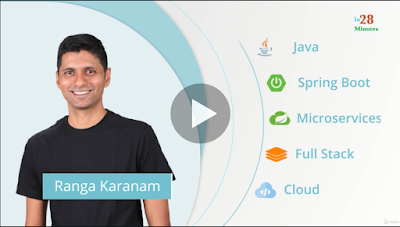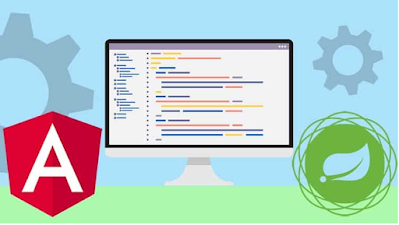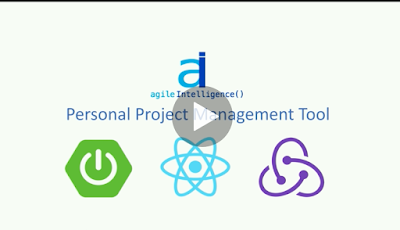Hello guys, If you want to become a full-stack Java developer in 2025 but are not sure what path you should take and how to get there, then you have come to the right place. In this article, I'll share some online training courses you can choose to become a full-stack Java developer. The demand for a full-stack Java developer is very high because Java is the #1 programming language for backend and server-side development. Frameworks like Spring Boot and Spring Cloud are also leading the Microservice architecture development, which is better suited for deployment in Cloud platforms like AWS, Azure, and Google Cloud Platform.
In this article, you will find courses from sites like Udemy, Coursera, and Pluralsight, where you can not only improve your backend skills but also learn modern front-end development using React, Angular, and other frontend development frameworks. You will also learn essential tools for full-stack development, including Docker, Kubernetes, Jenkins, and some unit testing tools.
Now the big question is, what should a Java developer learn to become a full-stack Java developer? At a bare minimum, he should know a frontend framework or library like Angular or React and a backend framework like Spring or Spring Boot.
The best combination is Spring Boot + Angular or Spring Boot + React, but if you know Java, JSP, and Spring, then also you are qualified as a full-stack Java developer.
Another thing I suggest Java developers learn is tools like Docker, Jenkins, and Kubernetes. It's expected from a senior developer to drive DevOps from a team and organization perspective, and learning these tools can potentially give you an edge over other full-stack developers.
Another thing I highly recommend is full-stack Java developers should learn about Cloud computing platforms like AWS, Azure, GCP, Heroku, or Openshift.
In this article, you will find courses from sites like Udemy, Coursera, and Pluralsight, where you can not only improve your backend skills but also learn modern front-end development using React, Angular, and other frontend development frameworks. You will also learn essential tools for full-stack development, including Docker, Kubernetes, Jenkins, and some unit testing tools.
Now the big question is, what should a Java developer learn to become a full-stack Java developer? At a bare minimum, he should know a frontend framework or library like Angular or React and a backend framework like Spring or Spring Boot.
The best combination is Spring Boot + Angular or Spring Boot + React, but if you know Java, JSP, and Spring, then also you are qualified as a full-stack Java developer.
Another thing I suggest Java developers learn is tools like Docker, Jenkins, and Kubernetes. It's expected from a senior developer to drive DevOps from a team and organization perspective, and learning these tools can potentially give you an edge over other full-stack developers.
Another thing I highly recommend is full-stack Java developers should learn about Cloud computing platforms like AWS, Azure, GCP, Heroku, or Openshift.
In 2025, you will most likely develop cloud-native applications, and a good knowledge of cloud platforms goes a long way in deploying and developing applications for the cloud. An AWS or Azure certification can also give you an edge over another full-stack Java developer applying for the same job.
5 Best Udemy Courses to learn Full Stack Development in Java in 2025
Though you can choose any frontend and backend framework for full-stack development, I strongly advise you to go with either Angular or React with Frontend and Spring Boot with backend, this is the most popular and standard stack for full-stack Java developers.In the list below, you will find courses that can help you to learn both Rect and Angular with Spring Boot and Spring Cloud for Microservice development.
Without wasting any more of your time, here is my list of some of the best online courses to learn full-stack Java development.
In this course, you will learn the basics of full-stack web development by developing a Basic Todo Management Application using React, Spring Boot, and Spring Security Frameworks.
This course is taught by fellow Java developers, bloggers, and Udemy best-selling instructor Ranga Karnam who believes in explaining step by step. You will build the Todo Management Application step by step - in more than 100 levels.
You will be using React as Frontend Framework, Modern JavaScript, Java, Spring Boot, REST API Framework, Spring Core, Spring Security for Authentication and Authorization - Basic and JWT, BootStrap for Styling Pages, Maven for building projects and dependencies management, Node for npm, Visual Studio Code as JavaScript IDE, Eclipse for writing Java code and Tomcat Embedded Web Server.
That's a lot to learn but that's why full-stack Java developers are paid well, they are known end-to-end and contribute to every phase of software development.
In this course, you will learn the basics of full-stack web development developing a Basic Todo Management Application using Angular, Spring Boot, and Spring Security Frameworks.
You will be using Angular as Frontend Framework, TypeScript Basics, Angular CLI for creating Angular projects, Spring Boot as REST API Framework, Spring for Dependency Management, Spring Security for (Authentication and Authorization - Basic and JWT), BootStrap (Styling Pages), Maven (dependencies management), Node (npm), Visual Studio Code (TypeScript IDE), Eclipse (Java IDE) and Tomcat Embedded Web Server.
Yes, the same app which you would have previous built-in course using REact, but this time you will build using Angular. Actually, you don't need to join both of them, join the previous course if you like React.js for frontend and this one if you have to use Angular for frontend development.
In short, a perfect course for Java developers who wants to learn Angular and do it beyond just an elementary kind of familiarity. On Social proof, more than 40K students have already joined this course. A big thanks to Ranga for creating this awesome course for full-stack JAva developers.
This course is created by Chaand Sheikh and you will learn all the basic concepts, tools, functions, and required topics that usually a Java Developer requires during the web application development process.
The course starts with Java, including multi-threading, Lambdas, Collections debugging, and an introduction to GIT. Then it teaches you JSP and Servlets, key web technologies for Java developers. Once you are done with JSP and Servlets, we will start exploring Hibernate.
The good thing about this course is that you will also build an application using JSP and Hibernate as well. If you are a traditional Java developer who needs to work with traditional JAva web technologies then this course is for you.
Knowing how to build Full Stack applications with Angular and Spring Boot can get you a job or improve the one you have. These are hot skills and companies are desperately looking for developers. Some of the highest paying job postings are for Full Stack developers with Angular and Spring Boot experience.
This course will help you quickly get up to speed with Angular and Spring Boot. I will demystify the technology and help you understand the essential concepts to build a Full Stack application with Angular and Spring Boot from scratch.
You will also use modern development tools such as IntelliJ, Visual Studio Code, Maven, and npm. All of the projects are based on Maven and npm, so you are free to use any tool that you want.
I have specially chosen this course becuase I strongly believe React.js is very very important for frontend development and every Java developer should learn React if they want to become a full-stack developer.
If you want to become a full-stack Java developer and know the basics of Java and the spring framework, then the next thing to do is build projects.
Building apps with real-life features is the best way to move forward in your journey to becoming a full-stack Java developer. The main benefit of this is that it sharpens your skills and helps you build your portfolio for prospective employers.
In this course, we will build a prototype of a personal project management tool using Spring boot 2.0 in the backend, ReactJS, and Redux on the front end. You will also build REST APIs with Spring boot for CRUD operations and secure our application using JWT tokens
Last but not least you will learn how to deploy your Spring Boot Java application into the cloud using Heroku's free tier. This is a great opportunity to get practical experience with two amazing technologies like React and Spring Boot, that are highly desirable by prospective employers.
That's all about the best Udemy courses to become a full-stack Java developer in 2025. As I said, Java is one of the popular programming languages along with Python and JavaScript for backend development and frameworks like Spring Boot and Spring Cloud lead cloud-native server-side development.
By learning some front-end frameworks like React and Angular and tools like Docker, Jenkins, and Kubernetes, you can enhance your profile and become a full-stack Java developer. This will also help to grow in your career and of course, make a difference of a few thousand USD in your salary.
Other Programming Resource articles you may like to explore
Without wasting any more of your time, here is my list of some of the best online courses to learn full-stack Java development.
1. Go Java Full Stack with Spring Boot and React
There are many frameworks you can choose to become full-stack Java developers like you can learn Angular, React, Vue, or plain Servlet JSP to implement the frontend and Spring Framework on the backend. Still, if you want to go with the best technologies, I suggest you choose React.js for the frontend and Spring Boot for the backend.In this course, you will learn the basics of full-stack web development by developing a Basic Todo Management Application using React, Spring Boot, and Spring Security Frameworks.
This course is taught by fellow Java developers, bloggers, and Udemy best-selling instructor Ranga Karnam who believes in explaining step by step. You will build the Todo Management Application step by step - in more than 100 levels.
You will be using React as Frontend Framework, Modern JavaScript, Java, Spring Boot, REST API Framework, Spring Core, Spring Security for Authentication and Authorization - Basic and JWT, BootStrap for Styling Pages, Maven for building projects and dependencies management, Node for npm, Visual Studio Code as JavaScript IDE, Eclipse for writing Java code and Tomcat Embedded Web Server.
That's a lot to learn but that's why full-stack Java developers are paid well, they are known end-to-end and contribute to every phase of software development.
2. Go Java Full Stack with Spring Boot and Angular
This is another great course from Ranga for Java developers who aspire to become a Full Stack Java Developer, the only difference is that this course focuses on Angular instead of React and you will build your first full-stack Java application with Angular and Spring Boot.In this course, you will learn the basics of full-stack web development developing a Basic Todo Management Application using Angular, Spring Boot, and Spring Security Frameworks.
You will be using Angular as Frontend Framework, TypeScript Basics, Angular CLI for creating Angular projects, Spring Boot as REST API Framework, Spring for Dependency Management, Spring Security for (Authentication and Authorization - Basic and JWT), BootStrap (Styling Pages), Maven (dependencies management), Node (npm), Visual Studio Code (TypeScript IDE), Eclipse (Java IDE) and Tomcat Embedded Web Server.
Yes, the same app which you would have previous built-in course using REact, but this time you will build using Angular. Actually, you don't need to join both of them, join the previous course if you like React.js for frontend and this one if you have to use Angular for frontend development.
In short, a perfect course for Java developers who wants to learn Angular and do it beyond just an elementary kind of familiarity. On Social proof, more than 40K students have already joined this course. A big thanks to Ranga for creating this awesome course for full-stack JAva developers.
3. Full Stack Java developer - Java + JSP + Restful WS + Spring
This course is for more traditional Java developers who have evolved learning core Java, JSP, RESTful Web Service, and Spring. It's actually the classic Java developer's full-stack manual but with a spice of Spring Boot and Hibernate.This course is created by Chaand Sheikh and you will learn all the basic concepts, tools, functions, and required topics that usually a Java Developer requires during the web application development process.
The course starts with Java, including multi-threading, Lambdas, Collections debugging, and an introduction to GIT. Then it teaches you JSP and Servlets, key web technologies for Java developers. Once you are done with JSP and Servlets, we will start exploring Hibernate.
The good thing about this course is that you will also build an application using JSP and Hibernate as well. If you are a traditional Java developer who needs to work with traditional JAva web technologies then this course is for you.
4. Full Stack: Angular and Spring Boot
Angular and Spring Boot are two of the hottest technologies for developing Full Stack applications.Knowing how to build Full Stack applications with Angular and Spring Boot can get you a job or improve the one you have. These are hot skills and companies are desperately looking for developers. Some of the highest paying job postings are for Full Stack developers with Angular and Spring Boot experience.
This course will help you quickly get up to speed with Angular and Spring Boot. I will demystify the technology and help you understand the essential concepts to build a Full Stack application with Angular and Spring Boot from scratch.
You will also use modern development tools such as IntelliJ, Visual Studio Code, Maven, and npm. All of the projects are based on Maven and npm, so you are free to use any tool that you want.
5. Full Stack Project: Spring Boot 2.0, ReactJS, Redux
This is another great online course from Udemy for full-stack Java development. It's a project-based course and you will build a Personal Project Management Tool from scratch using React, Spring Boot, and Redux.I have specially chosen this course becuase I strongly believe React.js is very very important for frontend development and every Java developer should learn React if they want to become a full-stack developer.
If you want to become a full-stack Java developer and know the basics of Java and the spring framework, then the next thing to do is build projects.
Building apps with real-life features is the best way to move forward in your journey to becoming a full-stack Java developer. The main benefit of this is that it sharpens your skills and helps you build your portfolio for prospective employers.
In this course, we will build a prototype of a personal project management tool using Spring boot 2.0 in the backend, ReactJS, and Redux on the front end. You will also build REST APIs with Spring boot for CRUD operations and secure our application using JWT tokens
Last but not least you will learn how to deploy your Spring Boot Java application into the cloud using Heroku's free tier. This is a great opportunity to get practical experience with two amazing technologies like React and Spring Boot, that are highly desirable by prospective employers.
That's all about the best Udemy courses to become a full-stack Java developer in 2025. As I said, Java is one of the popular programming languages along with Python and JavaScript for backend development and frameworks like Spring Boot and Spring Cloud lead cloud-native server-side development.
By learning some front-end frameworks like React and Angular and tools like Docker, Jenkins, and Kubernetes, you can enhance your profile and become a full-stack Java developer. This will also help to grow in your career and of course, make a difference of a few thousand USD in your salary.
Other Programming Resource articles you may like to explore
- 5 Free Spring Framework Courses for Java Developers
- Top 5 Courses to Learn Microservices with Spring Boot
- 5 Courses to Learn Web Development in 2025
- Top 5 Courses to learn Spring in Depth
- 5 Online Courses to learn Core Java for Free
- Top 5 Java design patterns courses for experienced Java devs
- Top 7 Courses to learn Microservices in Java
- 10 courses for Programming/Coding Job Interviews
- 10 Advanced Spring Boot Courses for Java developers
- Top 5 Courses to learn Spring Cloud for Beginners
- 5 Courses to learn Shell Scripting in Linux
- 10 Free Spring Boot Tutorials and Courses for Java Devs
- 10 Free Java Full-stack Development Courses














4 comments :
Thanks for the article, I signed up for the "Full Stack Project: Spring Boot 2.0, ReactJS, Redux" on Udemy and it seems to be really good.
Thank you Surya, goo job keep it up.
Hi surya
Are these all in Udemy ?
Yes, that's the 5th course in this list and you can join this if you want to learn Spring Boot with React by building a full fledged project.
Post a Comment